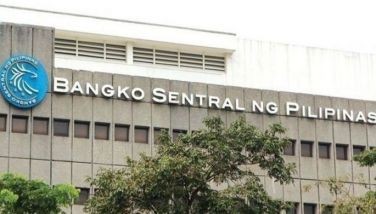BIR must verify claim
In its bid to push for approval of its unsolicited proposal to the government for the application of the stamp-tax technology to collect more excise tax from cigarette and liquor exports, the Swiss firm SICPA Product Security has assured, among other things, that its system can provide track and trace technology.
But it would appear in a study commissioned by the WHO Framework Convention on Tobacco Control (FCTC) that that capability cannot be assured based on the experiences in Brazil and Turkey.
The FCTC Secretariat had mandated a technical expert to prepare a report on the available technology for unique markings, in view of the proposed global track-and-trace regime in the negotiating text for a protocol to eliminate illicit trade in tobacco projects. The report clearly stated that the SICPA technology used in Brazil and Turkey does not fulfill the minimum FCTC track and trace requirements.
Because of this, the Bureau of Internal Revenue (BIR), which has been assigned by the Investment Coordination Committee (ICC) of the National Economic and Development Authority (NEDA) to conduct negotiations with SICPA on its unsolicited proposal, should look at SICPA’s claim more closely. BIR should investigate whether the SICPA’s claim has basis in fact based on the Swiss firm’s experience in other countries. The claim should not be accepted hook, line and sinker without any investigation.
Of course, the biggest objection to SICPA’s proposal is that it’s expensive. It is estimated the application of the stamp-tax technology would cost 52 centavos per pack of cigarette. It is because of this high cost that lawmakers at the House of Representatives recommended a stop to BIR negotiations with SICPA on the ground that its proposal would only impose added burden to consumers.
In 2006, SICPA submitted an unsolicited proposal under the build-operate-transfer (BOT) law to the Department of Finance for the use of the SICPATRACE system. The DOF endorsed the proposal to the BIR, which created the BOT-PBAC.
The proposal, which allegedly will generate additional revenues for the government amounting to P115 billion annually, calls for introducing strip stamps with a secret, covert code that will printed with highly visible security features to enable the public to determine if they are buying cigarettes with genuine stamp features. According to SICPA, it will be at no cost to government.
SICPA, on the one hand, will recover its investments through the assessment of a usage fee of $7 per thousand security stamps based on a minimum volume requirement of four billion stamps per year or a minimum of 80 billion sticks per year over seven years.
DFA responds
“This is with reference to the column by Ms. Mary Ann Ll. Reyes dated April 4, 2010 entitled ‘Undiplomatic Moves.’”
“The column presupposed that the recent ambassadorial appointments to Beijing, Rome and Berlin did not have the concurrence of the host countries, as required by diplomatic protocol.
“In the case of Beijing, Ambassador Francisco Benedicto assumed office at his new station months ago. The Chinese government had accepted his credentials, as well as the recall of his predecessor, Sonia Brady. Philippe Lhuillier ably served in Rome for 11 years, and following the diplomatic practice of periodic rotations and recalls, he has given way to a career Ambassador, Romeo Manalo.
“In the case of Ambassador Delia Albert, she was in fact instructed to remain at post in Berlin pending the confirmation by the Commission on Appointments of the nomination of her successor, Alfonso Yuchengco, and his receipt of an agreement from the host country. This was announced by the Office of the Press Secretary in a statement released on March 28, 2010 and was circulated in the media. Yet, this fact was not mentioned in said column.
“It may be noted that in two of the above three instances, political appointees were replaced by political appointees, while one was succeeded by a career official.
“Contrary to Ms. Reyes’ column, diplomatic conventions do not require sending states to ‘inform the host country first of their intention to recall their ambassadors in due time...’ The recall of one’s envoy has been the untrammelled prerogative of sending states since the dawn of modern diplomacy. “ – J. Eduardo Malaya, spokesman, Department of Foreign Affairs.
BSP explains why outsource
“In response to your column last March 21, 2010, which asked ‘why outsource’ we wish to reassure you and your readers of the following:
“1. BSP continues to upgrade and expand its capacity to print our banknotes and mint our coins to cope with our growing population and economy. While the use of credit cards and debit cards continues to rise, cash remains the payment of choice in our economy. And because it is true that it is more economical for us to print our money than to outsource it, the BSP is investing in new printing and min-ting equipment.
“2. BSP’s bidding for new printing equipment has not been abandoned but simply deferred. Our in-house taskforce for the project recommended the cancellation of the original bidding simply because new information regarding printing technology came in. BSP will proceed with the bidding for new printing equipment as soon as the revisions being made on the specifications are completed to reflect the latest innovations in printing technology. We want to make sure that we will get good value for our investments. “3. Outsourcing as means to meet demand for currency is an established global practice. In fact, there are about 80 countries that do not have their own banknote printing facility and rely entirely on outsourcing for their currency requirements. Countries that outsource 100 percent of their currency requirements include Singapore, Finland, Brunei, Sweden, Bahrain, Peru, Luxembourg, Kenya, Kuwait, Sri Lanka, and Qatar. At the same time, central banks that have their own printing facilities also resort to outsourcing to supplement existing production capacities, to fill in surges in demand and to ensure continuous supply when their facilities are on maintenance.
“4. In accordance with global practice, the preparation of the metal plates and dies for the production of money is done by highly specialized groups called “originators.” These origination materials will serve as basis for the printing of the first batch of our new currency, for which an international competitive bidding will be conducted. After this, the BSP’s Security Plant Complex in Quezon City will start printing our new currency using these origination materials.
“5. The Bangko Sentral ng Pilipinas is not retiring all peso bills by November this year. While the BSP plans to start issuing new banknote designs with upgraded security features by December, the present banknotes that are in circulation will remain legal tender for at least three more years. Based on previous demonetization program of the BSP, this will give enough time for the public to make a full transition to our new generation currency. The BSP shall issue appropriate notices and information across the country to guide the public before and after the introduction of our new banknotes. We hope we can count on your help in disseminating information related to our new banknote designs and its upgraded security features.” – Fe M. dela Cruz, director, corporate affairs office, Bangko Sentral ng Pilipinas.
For comments, e-mail at [email protected]
- Latest
- Trending






























